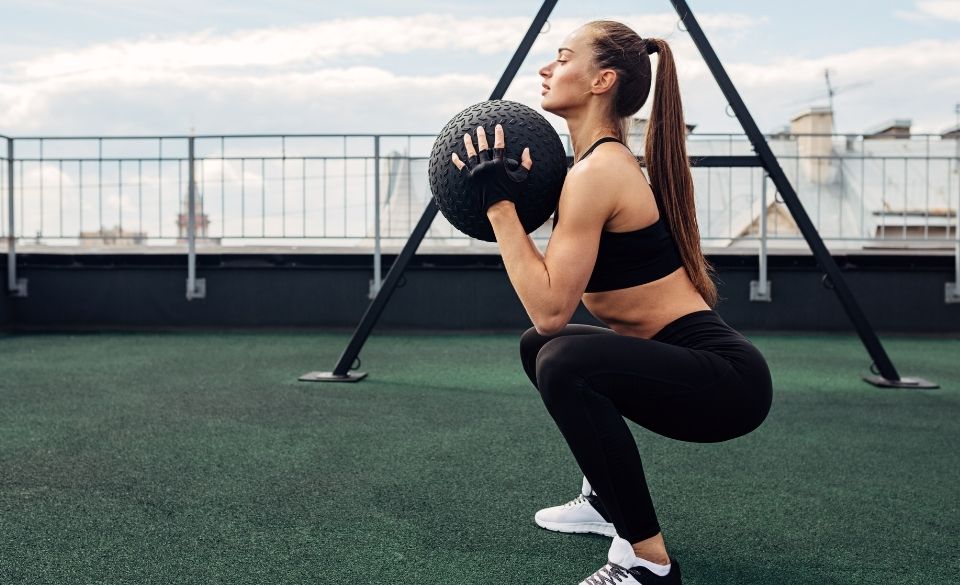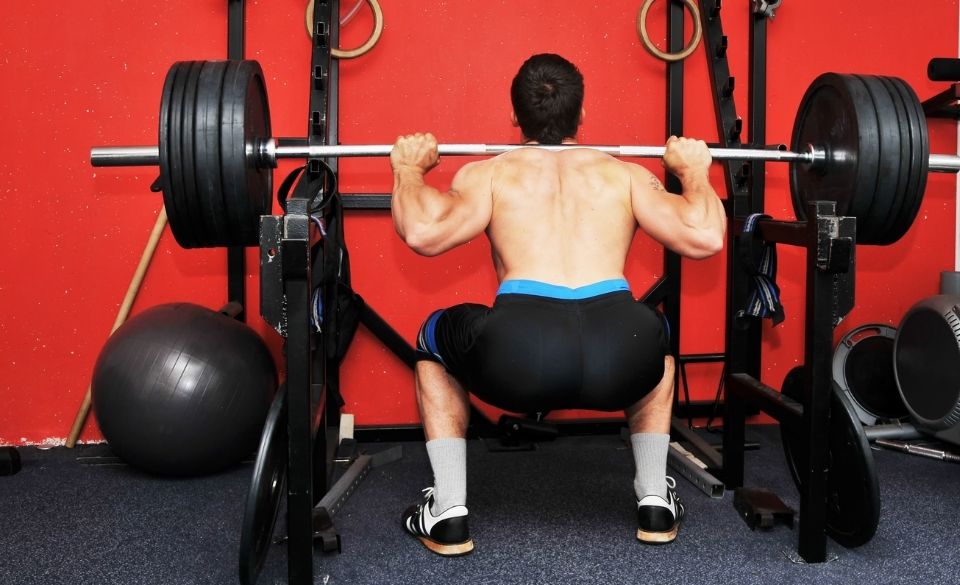
How Many Squats Should I Do A Day? Guide To Doing Squats
Page Contents
Many people get addicted to doing squats every day, and for a good reason. Squats are great for shaping your quadriceps, hamstrings, and glutes while also helping you improve your balance and mobility. A study in 2002 even found that the deeper you squat, the more engaged your glutes become.
So, knowing this, how many squats should you do in a day?
In this article, we discuss all things to do with squats. How many you should do a day, what is a squat and why they are important. So, if you are still not convinced why you should add squats into your weight training program, keep reading because it might help you gain that strength and power you have been missing.
What Is A Squat?
A squat exercise is a movement that requires you to lower your hips from a standing position. It then requires you to stand back up. All this is done in one fluid motion. During the squat exercise, the hip and knee joints flex while the ankle joint dorsiflexes.
Squats are important when it comes to developing strength and muscle mass of the lower body muscles. This is extremely important in sports that require lots of lower body muscles.
The primary muscles used during a squat are the quadriceps, adductors, and glute muscles. It also uses the abdominal muscles, erector spinae, and other smaller muscles.

Why Are Squats Important?
Squats are not only important for athletes or sportspeople but also regular people because they help strengthen the lower body and target the glutes and quadriceps. They also help engage your abdominal muscles, which promote better posture and core strength.
However, for many people, their goal of weight training is to burn more calories and lose weight. The great thing about squats is that they help increase your metabolism and burn calories faster than other weight training exercises.
Adding squats into your workout routine will also help reduce the chances of knee and ankle injuries, as they help strengthen the tendons, bones, and ligaments in the leg muscles.
If your goal is to improve your flexibility or shape up your legs and butt. Squats can do just that, as they can help tighten and firm your bum while also improving your posture and balance.
How Many Squats Should I Do A Day?
When it comes to how many squats you should do in a day, there is no general recommendation. A lot of it depends on your weight training background, how strong you are, and your individual goals.
However, if you are new to squatting it is recommended to stick below 2 sets of 12 to 15 repetitions. You should then only stick to performing this type of weight training a few days a week. Any more than that, you may find you suffer from DOMS or even minor injuries from stressing the muscles too much.
It is also important when starting you do squats without any weights. This will help you to perform the squat with the right technique. Then once you are confident in your form, you can start to introduce a small number of weights to the workout.
For the more experienced athlete, you should do at least three sets of fifteen repetitions three times a week. By following this guideline you will increase your muscle mass, flexibility, strength, and mobility in the lower body.

Benefits of Squats
There are many benefits of squats and that’s why there are multiple reasons why they should be incorporated into your workout routine. Some of these include:
– Builds muscles in the glutes, quads, and hamstrings
– Helps to burn calories faster than other weight training exercises
– Improves flexibility in the lower body
– Increases mobility
– Promotes better balance
– Prevents lower body injuries
– Helps maintain healthy joints and tendons
– Keeps the bones strong
– Improves posture
However, an overlooked benefit of regular squats includes circulation and digestion. By doing squats you can help improve the speed at which fluids travel through your body. This allows more oxygen and nutrients to travel to your body’s organs. It also improves better small intestine efficiency.
Conclusion
Incorporating squats into your workout routine can help you develop stronger and more resilient lower leg muscles. This can help prevent injuries and allow better recovery from training. However, it is important to seek professional advice from a coach or personal trainer, to make sure you don’t overdo with when starting, especially when you are wondering how many squats you should do a day.



